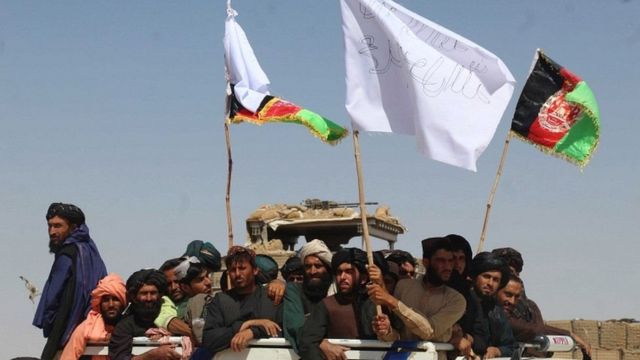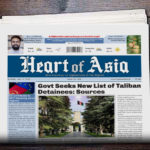Afghan President Ashraf Gani briefed foreign governments on Friday on preparations for peace talks with the Taliban. Yet, while the forthcoming negotiations may see a historic breakthrough, they remain balanced on a knife edge with Gani warning last week that an upsurge in Taliban violence may scupper the whole process.
The intra-Afghan talks, slated to begin in the Qatari capital Doha as soon as this month, are part of a wider February deal between the United States and the Taliban to end the post-9/11 two-decades long war in the country. This is now the longest ever running US involvement in a military conflict, and the Trump team badly wants to signal a further commitment to drawdown US troops with November’s presidential election on the horizon.
The US peace deal with the Taliban, which involves withdrawal of foreign forces in exchange for security guarantees by the Taliban, comes as Afghanistan stands at a critical crossroads with much uncertainty on the horizon. This is not least given the continued violence across the nation, with insurgents now controlling perhaps the largest portion of the country since the fall of the Taliban regime in 2001.
While a historic peace breakthrough is possible, there remains a prospect of significant new political, security and economic instability if the reconciliation process breaks down.
–
While the peace process with the Taliban may offer the best hope for a sustained peace for decades, many in Afghanistan are understandably anxious about their collective futures. While fragile gains have been made since 2001, the country faces a daunting array of economic, security, and political risks. And this is despite the fact that well over a €100 billion has been already spent by Washington alone in the last 20 years.
The biggest challenge may remain the country’s internal security situation, despite pledges that are made by Taliban militants. This point was emphasised by Gani on Wednesday in briefings with international governments, including the United States, Russia, Pakistan, India, China, Egypt and Qatar, when he highlighted a spike in Taliban violence.
This increase in disorder comes after Afghan authorities have released more than 4,000 of the 5,000 Taliban prisoners promised in February’s deal. Meanwhile, Washington has reduced its troop presence to 8,600 (from 12,000) with the plan to potentially withdraw all foreign forces potentially by the middle of next year.
Worries over economy
In this context, fears have been repeatedly raised that, should the security situation deteriorate much further in coming months, this foreign force (now a tiny fraction of the previously 150,000-strong combat presence) is not big enough. This footprint also remains key for ensuring training and cohesion for the several hundred thousand strong Afghan police and military personnel — which have day-to-day responsibility for security in the country — which may otherwise disintegrate.
On the economic front, the news is not good either. Reconstruction has been slow, unemployment remains very high, and over a million Afghans are internally displaced in the country, with millions more refugees believed to be in Pakistan and Iran. And this, despite estimations that Washington has spent more on Afghan reconstruction than the cost of the Marshall Plan that helped rebuild Europe after the Second World War.
One of the most corrupt states in the world
It is also clear that, since 2001, the economy has not been diversified enough from drug exports such as opium and heroin, despite the fact that the country has abundant natural resources — gas, minerals and oil — with an estimated value of some $3 trillion. A related problem is corruption with Transparency International ranking Afghanistan as one of the most corrupt states in the world.
However, in the midst of this difficult picture, there remains some cause for optimism, especially if a sustainable peace deal can be agreed with the Taliban. Take the example of the country’s fledgling democracy.
The country’s first national unity government survived more than a half decade of a landmark power-sharing agreement was reached in 2014 between Gani and Chief Executive Abdullah Abdullah, the former foreign minister. The creation of the national unity government represented the first democratic transfer of power in the country’s history following Hamid Karzai’s administration.













